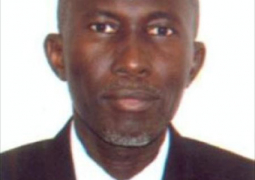The deputy Minister of Agriculture, Momodou S. Kah, yesterday launched a five-year project worth US$20 million geared towards strengthening food security through the commercialisation of agriculture.
The project is being implemented in seven countries namely, Guinea Conakry, Guinea
The
The project, among others, seeks to improve food security in the Gambia not only by helping the farmers to produce more, but more importantly help them to sell better what they produced.
In his launching statement at the Kairaba Beach Hotel, deputy Minister Kah said the project comes at a time when the
This, he stated, is being done through the utilisation of the relentless efforts of the citizenry in the realisation of Vision 2020, the Poverty Reduction Strategy Paper (PRSP II), the Millennium Development Goals and the CAADP partnership compact of the Gambia National Agricultural Investment Programme (GNAIP).
"The overall objective of the project is to provide support to the development of African agriculture into a modern, competitive and commercially dynamic sector, while building on the achievement and lessons learned from the national programmes for food security," Kah added.
Baboucarr Jallow the Minister of Trade and Employment commended the Italian Government for funding what he described as "a lives improvement project" in the
The project, he added, would go a long way in complementing the government's drive towards the attainment of food self-sufficiency.
Speaking earlier, the FAO representative in the
Success in moving fast to cut the number of hungry and malnourished people will go a long way in reducing human suffering, stimulate economic growth where it is most needed and contribute to global stability to everyone's benefit, he said.
"Our experience in the FAO showed that it was possible to engaged very large numbers of rural people in identifying and applying locally specified solutions involving the use of simple, improved technologies to address problems of hunger and malnutrition," he added.
Dr Monday Bamba Lead Technical Officer TCFS at the FAO office in


